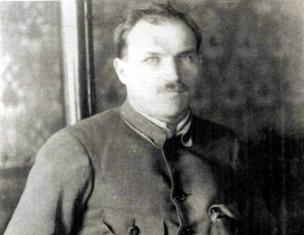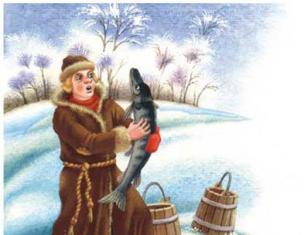Author: Ilyina Alina Yuryevna, English teacher.
Organization: MBOU Secondary School 88 with cadet classes
Location: Barnaul, Altai Territory The script is intended for English teachers in primary schools, developed for children in grades 3-4. During the event, children will repeat and consolidate knowledge of previously studied material.
Goals:
- developing interest in the subject English;
- testing practical skills and abilities based on previously studied material;
- development of creative activity of students;
- development of students’ communication skills when working together.
2 teams take part in the event.
Equipment: handouts, cards, projector, computer, markers and paper for the creative competition.
Progress of the lesson.
1 competition. Captains competition. Who are you? (Who are you?)Students name their team and choose a captain. There are several name options to choose from: Tigers, Crocodiles, Cats, Dolphins, Sharks, Bears, Foxes. You are also given a card with questions that will help you talk about the team:
Captains introduce their teams by answering questions from the teacher.
For example:
Teacher: Who are you? (Who are you?)
Captain: We are Foxes. (We are Foxes)
Teacher: Where do you live? (Where do you live?)
Captain: We live in the forest. (We live in the forest)
Teacher: What color are you? (What color are you?)
Captain: We are red. (We are redheads).
The first competition evaluates literacy and pronunciation, with the best team receiving a point.
2 Competition. Flowers. How do you spell it? (Flowers. How do you spell it?)
Students are shown cards (or on the screen) with the name and image of a flower. The presenter reads the word and explains what it means. Participants need to spell it (to spell).
List of words: tulip (tulip), sunflower (sunflower), orchid (orchid), bluebell (bell), poppy (poppy), snowdrop (snowdrop), rose (rose), violet (violet).

The competition evaluates students' knowledge of the alphabet and correct pronunciation of the names of letters. For each correctly completed task, the team receives a point.
3 Competition. Let's count! (Let's count!)
Participants receive cards with mathematical examples that they need to solve correctly and voice the example in English.

For example:
7+3=10 Seven plus three is ten.
13-4=9 Thirteen minus four is nine.
The competition evaluates students' knowledge of numbers and numbers and their correct pronunciation. For each correctly solved example, the team receives a point.
4 Competition. Funny words. (Funny words)
Team members are given a set of cards with letters. A word appears on the screen, participants must form this word from letters as quickly as possible, holding cards in their hands (i.e., children must line up in the order they need).
Task options:
1) Cards: A, M, P, L. Words: LAMP, PALM, MAP.
2) Cards: E, A, R, C. Words: CARE, RACE, CAR, EAR.
3) Cards: F, A, L, Y, M, I. Words: FAMILY, FAIL, FILM, MAIL, MY.
4) Cards: E, L, S, I, M, P. Words: SIMPLE, LIE, LIPS, PIE.
The competition evaluates the speed of completing a task. For each correct word composed faster than the second team, a point is awarded.
5 competition. Draw me. (Draw me)
Creative competition. Teams receive a task card. The card contains a description of the animal; it is necessary to depict it as accurately as possible on a piece of paper.
Examples of tasks:
1) I am a cat. I am black and white. I have got big blue eyes and a very small pink nose. I like milk and fish. (I am a cat. I am black and white. I have big blue eyes and a very small pink nose. I love milk and fish.)
2) I am a dog. I'm brown. I have got long ears and big white teeth. I have got a short tail. I like meat and milk. (I am a dog. I am brown. I have long ears and big white teeth. I have a short tail. I love meat and milk.)
In this competition, the correspondence of the drawing to the text of the assignment is assessed. The best team gets a point.
Summing up.
Summing up takes some time; the team with the most points for the event wins.
English language
The Center for Distance Olympiads and Creative Projects for Teachers and Students “Olympus of Success” has prepared a creative competition in the new format WEB-QUEST in English “The United Kingdom of Great Britain and Northern Ireland”, the participants of which will have to answer 25 questions about Great Britain, information for which must be found on the Internet on the sites specified in the task...
Acceptance of applications and completed work: 09/01/2017 – 06/30/2018
English language
Regional studies play a major role in learning a foreign language, thanks to which students become acquainted with the realities of the country of the language they are studying, gain additional knowledge in the field of geography, education, culture, etc. Studying regional realities gives impetus to increasing motivation for learning languages.
This event is over and the winners have been announced. Award materials in the teacher’s personal account.The entire list of active competitions is in the Competitions section →
Acceptance of applications and completed work: 01.10.2017 – 30.06.2018
English language
January 22, 2018 marks the 230th anniversary of Lord George Gordon Byron, the English romantic poet, author of Childe Harold, Don Juan and many famous works. “After all, what is a lie? Disguised Truth" (J. Byron) For this significant date, the Center for Distance Olympiads and creative projects for teachers and students "Olympus of Success" has prepared a creative competition "Lord George Byron" in the new WEB-QUEST format, the participants of which will have to answer 12 questions, information for which you need to find it on the Internet. Questions may be answered briefly or in detail.
This event is over and the winners have been announced. Award materials in the teacher’s personal account.The entire list of active competitions is in the Competitions section →
Acceptance of applications and completed work: 01/15/2018 – 06/30/2018
English language
New Year is approaching! This bright and cheerful holiday is celebrated all over the world on the night of December 31 to January 1. What do you know about the traditions of celebrating this day in countries such as Great Britain, the United States of America and China? Let's compare their traditions with Russian New Year's customs! How are they different? What do we have in common?
This event is over and the winners have been announced. Award materials in the teacher’s personal account.The entire list of active competitions is in the Competitions section →
Acceptance of applications and completed work: 12.12.2017 – 31.01.2018
English language
On October 1, the International Day of Older Persons is celebrated, in accordance with resolution 45/106 of the UN General Assembly of December 14, 1990. For this day, the Center for Distance Olympiads and Creative Projects “Olympus of Success” prepared an All-Russian creative essay competition in English for grades 5 - 11, I-II years of secondary educational institutions “Old age is the new life” and invites teachers and teachers of the English language and their talented students to take part in it.
This event is over and the winners have been announced. Award materials in the teacher’s personal account.The entire list of active competitions is in the Competitions section →
English language
The Center for Distance Olympiads and Creative Projects for Teachers and Students “Olympus of Success” has prepared a creative competition in the new format WEB-QUEST in English “Halloween. The origin and traditions”, in which participants will have to find 10 errors in the text, based on information that needs to be found on the Internet on the sites specified in the task...
This event is over and the winners have been announced. Award materials in the teacher’s personal account.The entire list of active competitions is in the Competitions section →
Acceptance of applications and completed work: 01.10.2017 – 31.12.2017
English language
On April 21, 1926, Queen Elizabeth II was born. The title of Her Royal Majesty in the United Kingdom is: "Elizabeth the Second, by the Grace of God Queen of the United Kingdom of Great Britain and Northern Ireland and her other Domains and Territories, Head of the Commonwealth, Defender of the Faith." Elizabeth was only 25 years old when she became queen, and has remained so for decades. For this day, the Center for Distance Olympiads and Creative Projects for Teachers and Students “Olympus of Success” has prepared a creative competition in the new format WEB-QUEST in English, the participants of which will have to answer 20 questions, information for which must be found on the Internet on the sites specified in the task ...
This event is over and the winners have been announced. Award materials in the teacher’s personal account.The entire list of active competitions is in the Competitions section →
Acceptance of applications and completed work: 04/17/2017 – 08/31/2017
English language
Since 2001, according to the decision of UNESCO, January 16 is celebrated as World Beatles Day. The group received worldwide recognition in 1963 after the release of the single “Please Please Me.” From that moment on, madness began on the planet, which received the self-explanatory name “Beatlemania”...
This event is over and the winners have been announced. Award materials in the teacher’s personal account.The entire list of active competitions is in the Competitions section →
Acceptance of applications and completed work: 01/01/2017 – 06/30/2017
English language
January 29, 2017 marks International Internet Free Day. The main goal of this holiday is to completely distract people from computers and the global network for at least one day, in order to live this day exclusively in the “real” world, communicate with other people exclusively “live” or devote it to their favorite hobby (of course, not related to with the Internet). The Center for Distance Olympiads and Creative Projects "Olympus of Success" invites teachers and teachers of English and their talented students to take part in the All-Russian creative essay competition in English for grades 5 - 11, I-II years of secondary schools "My Day without the Internet".
This event is over and the winners have been announced. Award materials in the teacher’s personal account.The English language opens up wide opportunities for students. Teaching from primary school, it has no age restrictions. As part of the school curriculum, creative English language competitions help make learning a foreign language even more interesting.
The OLYMPUS SUCCESS Center offers programs adapted for students of different age groups. Among the tasks developed by professional methodologists, there are creative competitions for primary schoolchildren, as well as teenagers who are familiar with English at an advanced level.
Registration of participants is carried out by the teacher. Tasks can be completed remotely, at a time convenient for you, which helps optimize your workflow. This format is also comfortable for children: it relieves them of unnecessary stress. This is a great opportunity for a teacher to organize the learning process in a non-standard way, and for children to supplement their portfolio with certificates of participation in a creative competition.
Lesson-game “ Merry Competitions”
(“Fun Competition”)
2nd grade
Purpose of the lesson : conducting generalized repetition and monitoring of students’ mastery of vocabulary, reading, writing, and monologue oral speech in a playful manner.
Tasks : 1) activation of vocabulary on the topics “Acquaintance”, “Animals”, “Colors”, “Numerals”; 2) improving listening skills and monologue speech; 3) training spelling skills;
Design, equipment, items (forcompetitions):
tokens;
2) letters (for making words);
3) cards with the names of encrypted animals;
4) 2 scarves for blindfolding;
5) tape recorder, cassette recording dog en “How do you do?” “Spring is green” “Jolly Jack”;
6) 2 hats, 2 fans, 2 baseball caps, 2 envelopes. 2 caps, 2 pacifiers for staging the song “ How do you do?”
7) pictures depicting the seasons.
Plan.
I. Start of the lesson. Greetings. Setting the lesson goal. Distribution of students into two teams.
II. Conducting competitions
1) “Greeting” competition;
2) “Business Card” competition;
3) competition of captains “Whose sun is brighter”;
4) competition “Do you know animals?”
5) competition “Decipher the names of animals”;
6) competition “Riddles about animals”,
7) competition “Jolly Artists”;
physical education “ Jolly Jack";
8) competition “Funny Counting”;
9) competition for captains “Name the colors”;
10) competition “More words”;
Song-game “How do you do?”
III. Summing up the results of the competition;
Song “Spring is green”.
Scenario .
I. Teacher: How do you do, kids?
Pupils: How do you do?
Teacher: I hope you are well, kids.
Pupils: We hope, you are too.
II. Today we have competitions. Two teams will take part in our competitions. The first team is the first row, and the second team is the second row. They will be"Merry Competitions ". Choose the leader.
Give the name to your team. Show your team's favorite toy. It will be your team's emblem.
Competitions
Competition 1. “Greetings”. Now greet each other.
Teams greet each other using all possible options. Each greeting is worth 1 point.
Competition 2. “Business card”. You have to introduce yourselves.Tell us your names, age and what you can do. Students introduce themselves, saying their name, their age and what they can do. Each correct answer is worth 1 point.
Captains competition. "Whose sun is brighter." Will you come to the blackboard and describe your toy animal. Team captains go to the board on which two circles are drawn and describe the animal emblem of their team. For example, It is a bear. It is big. It is brown. It can dance. Etc. Each correct sentence is a ray to the circle and 1 point. The captain whose sun has more rays wins.
Contest4. “Do you know animals?” Name the animals as more as you can. Representatives from each team take turns pronouncing the names of the animals. For each animal named, the team receives a token.
Competition 5. “Decipher the names of animals.” Guess the names of the animals. Task for teams: decipher the words and write them down on a card prepared in advance by the teacher.
Encrypted words: god (dog), tac (cat), ogrf (frog), gip (pig), itreg (tiger), bartib (rabbit)
Competition 6. "Riddles about animals."
It is not big. It is small. It can jump. It can swim. It can't go. It is green. It lives in the river. (A frog.)
It is big. It lives in Africa. It can run and go. It can't jump. It can't fly. It is grey. (An elephant.)
It is not big. It lives in the house. It can climb, run and jump. It can be grey, white, brown or red. (A cat.)
It is big. It lives in the river. It can swim. It can go. It can't climb. It is green. (A crocodile.)
It is little. It lives in the house. It can run. It is grey. It says: “Pee-pee-pee.” (A mouse.)
It is big. It can run, go and climb. It lives in the forest. It is brown. (A bear.)
Contest 7. « Merryartists». Can you draw animals with your closed eyes?
Children blindfolded draw animals on the board. Maximum points for each animal. - 3
Physical education minute “ Jolly Jack.”
Competition 8. “Fun account.” Let's" s count from one to ten. Do it quick five times
Participants quickly count to ten, taking turns calling the numbers. This is done five times. The one who makes a mistake is out of the game.
How many players remain on the team, the team receives so many points.
Contest captains. « Name itcolors». Look thoroughly at each other. Try to name all the colors of the clothes of your rival.
The captains are asked to look carefully at each other, and then, turning away, name the colors of their opponent’s clothing from memory. The correct answer is 3 points.
Competition 10. “More words”.
Make
up
as
more
words
as
you
can.
You need to make up as many words as possible from
letters that make up a word "
SPORTSMAN".
For example, such
words,
Howsport, port, or, ten, rose, nose, stop, pot, pet, nest, pen, on,
not. The number of points is awarded based on the number of written
words
Summing up the results of the “Fun Competitions”. The winning team is announced.It’ s a pity but our competition is over. It's time to count the points.
The game is being played How do you do?”
III. The lesson is summarized (together with the students). Everyone present sings the song "Spring is green".
Literature:
ISL No. 2, 1996 (“Stagings and games in extracurricular activities and English lessons in 5th grade”), pp. 66-69.
Stronin, “Educational games in the English lesson.”
Dzyuina E. V. Lesson developments in English for teaching materials of M. Z. Biboletova and others “ Enjoy English”: 2nd grade. – M.: VAKO, 2009. – 256 p. – (To help the school teacher)
We all know that English is an almost integral part of our lives. We can say that almost each of us has either taught it or is teaching it at the moment. Knowledge of English helps when traveling abroad and in career growth. But not each of us is able to afford it. There is one opportunity that will help you see the birthplace of the English language, and also allow you to evaluate your knowledge with the help of competent specialists. I'm talking about English language competitions, which, it seems to me, is necessary for everyone who has mastered or is mastering this foreign language to participate in.
Why participate in English language competitions?
First, you check your level of English proficiency and identify areas that need work and improvement. Secondly, you meet new people if competitions are not held in absentia. And, as you know, good acquaintances are always useful in life. Thirdly, if you win, you receive documented confirmation of your skills and abilities in the form of all kinds of certificates, diplomas, medals, etc. As a rule, along with a paper confirmation of your qualifications, the competition organizers present prizes, sometimes very valuable ones. You might even win a trip to the country of the language you're learning. And this is worth a lot!
Don't be afraid of English language competitions. Try your hand, and luck will definitely smile on you. At one time I took part in two English language competitions. I learned about these competitions from the Komsomolskaya Pravda newspaper. The first was dedicated to translators and was called “European Crimea”. It was carried out in two stages: first, it was necessary to translate in writing a piece of text from English that was published in the newspaper. Then, the finalists were invited to Simferopol for the same type of activity. By the way, there I met a girl who later became my friend. I took a prize and was awarded a camera, which was not a cheap gift at that time.
The second competition was held in absentia. It was necessary to complete several tasks that were published in this newspaper throughout the month. As a result, the twenty best were selected, among which two winners were then chosen at random on air on the M1 channel. They had the opportunity to study at one of the language schools in England for two weeks. I made it to the top twenty, but then my luck changed.
Where to look for English language competitions?
First of all, I would advise you to pay attention to periodicals - now popular collections that need to be collected by publication. If I'm not mistaken, there is even one dedicated specifically to the English language. If you are a fan of the World Wide Web, you should look for English language competitions there.
For example, recently on the dictionary website ABBYY LINGVO– – The III translation championship for high school and university students recently ended, the main prize of which was a trip to the country of the language being studied. The participants in this competition were residents of Russia, Germany and Ireland. And the competition was dedicated not only to English, but also to German.
Foreign publishers of English-language literature very often organize English language competitions. For example, . This organization constantly holds competitions, olympiads, and English language tests. The prizes in these competitions are very high-quality and very expensive products for learning English (, reference books, dictionaries, multimedia publications, etc.).
If you have deep knowledge of the language, you can take part in a competition to write articles about the English language, English-speaking countries, their culture and people. For example, visit the website. The main requirements for articles are literacy, uniqueness, and loyalty. That is, the topic of the article should not offend anyone, should be presented in literate language, and the article itself should remain one of a kind, not posted anywhere before.
English language competitions can be very diverse, and you do not need to have an advanced level of language proficiency to participate in them. On the contrary, try, correct your mistakes, improve your skills and abilities, and I am sure that luck will definitely smile on you.
If you find an error, please highlight a piece of text and click Ctrl+Enter.
- Contest
- Olympics
- Competition-game
- Subject week
- Family competition
- Children with disabilities
- Control test
- Summer camp
- Tests online
Distance Olympics of the Snail Center
Goals and objectives of distance competitions of the Snail Center:
- checking students' knowledge level
- developing the skill of self-appropriation of knowledge
- formation and development of skills for independent search and analysis of information
- formation and development of skills in using Internet services in education
- increasing motivation to study the subject
Olympics
They give the participant the opportunity to test and deepen their knowledge of a specific school discipline or even one section of it. All tasks of distance Olympiads are divided by age groups and correspond to school programs and the requirements of the Federal State Educational Standard.
Competition-game
They give the participant the opportunity to test and deepen their knowledge of a specific school discipline or even one section of it. All tasks of distance Olympiads are divided by age groups and correspond to school programs and the requirements of the Federal State Educational Standard.
Subject week
They give the participant the opportunity to test and deepen their knowledge of a specific school discipline or even one section of it. All tasks of distance Olympiads are divided by age groups and correspond to school programs and the requirements of the Federal State Educational Standard.
Family competition
They give the participant the opportunity to test and deepen their knowledge of a specific school discipline or even one section of it. All tasks of distance Olympiads are divided by age groups and correspond to school programs and the requirements of the Federal State Educational Standard.
Specialist. competitions
They give the participant the opportunity to test and deepen their knowledge of a specific school discipline or even one section of it. All tasks of distance Olympiads are divided by age groups and correspond to school programs and the requirements of the Federal State Educational Standard.







